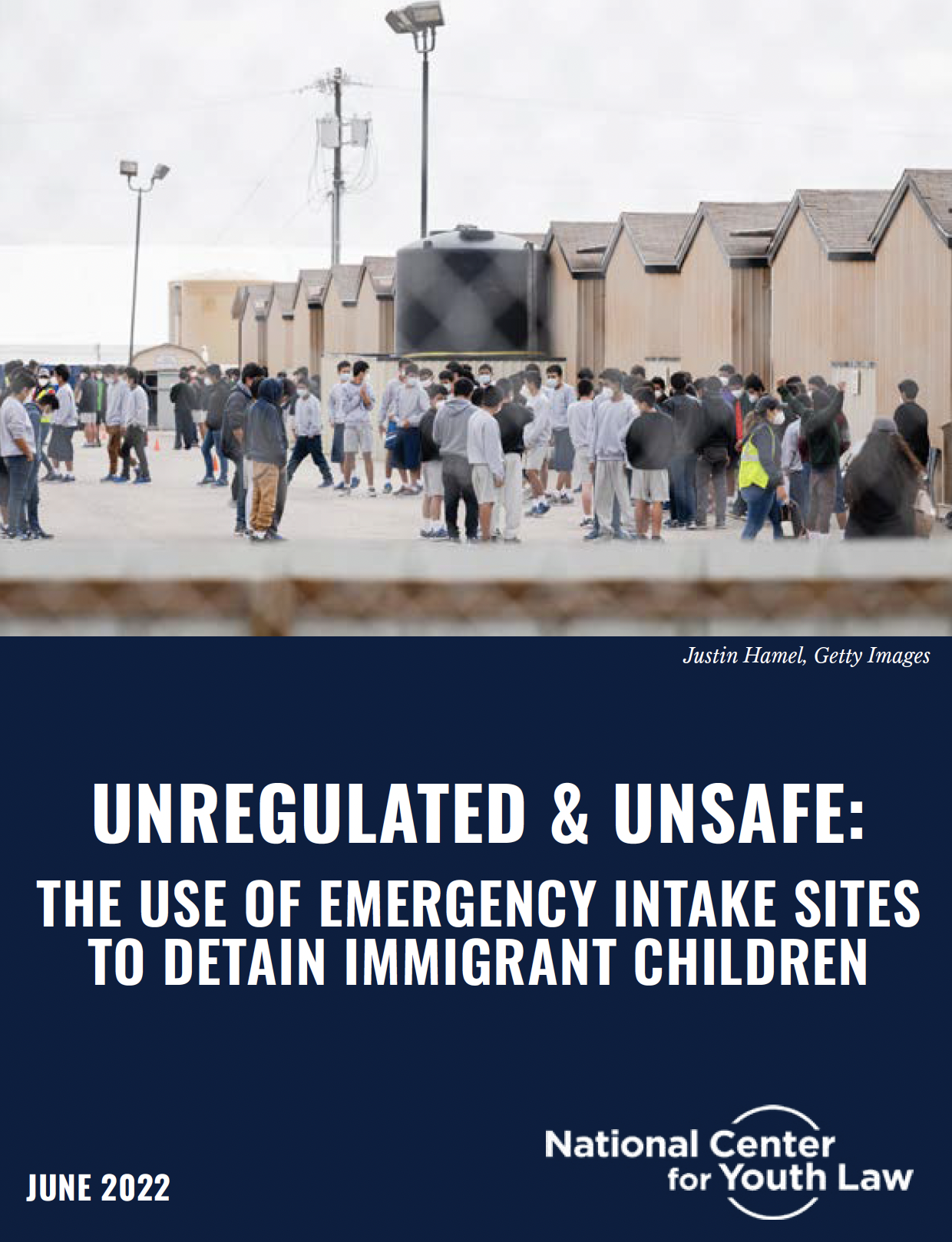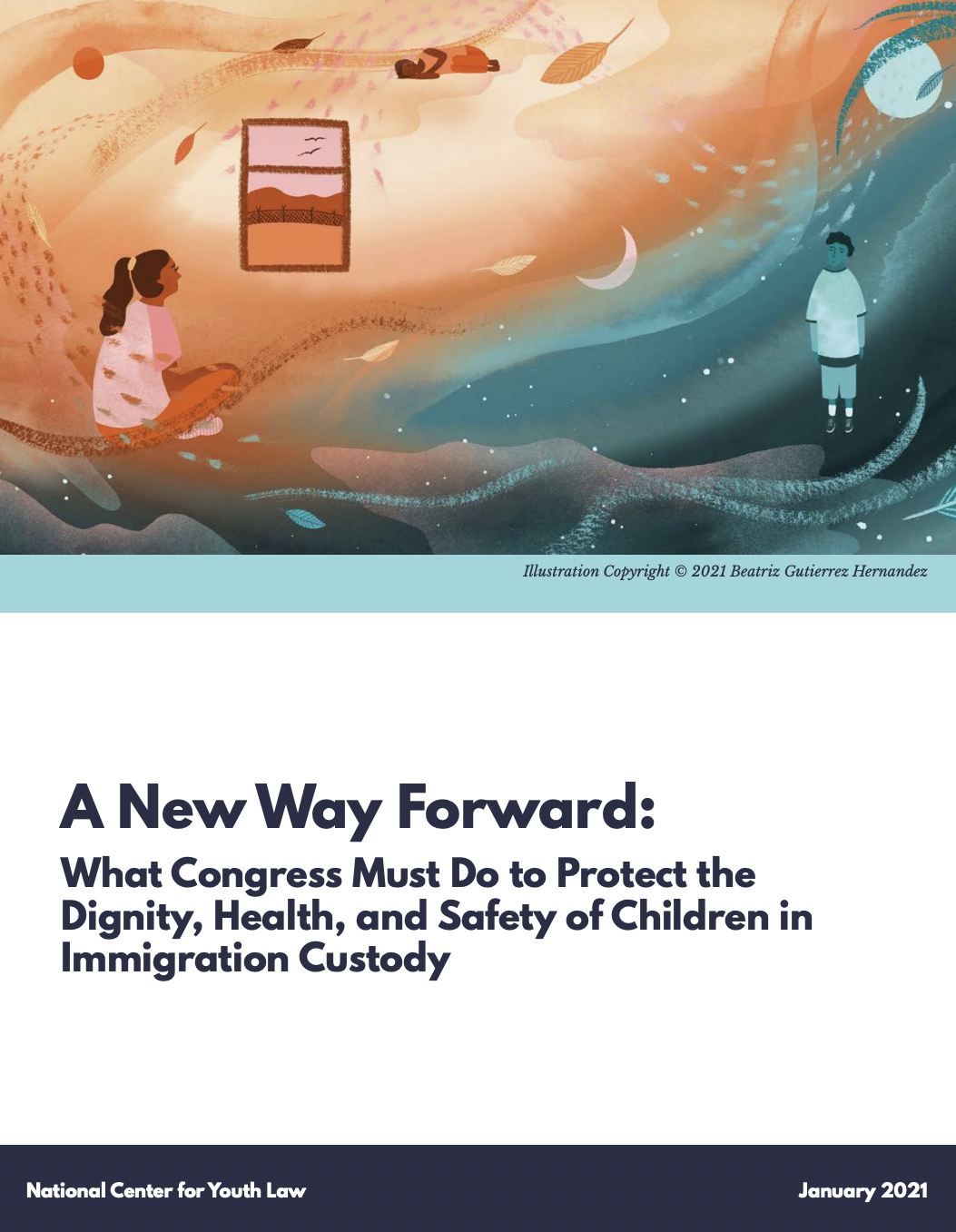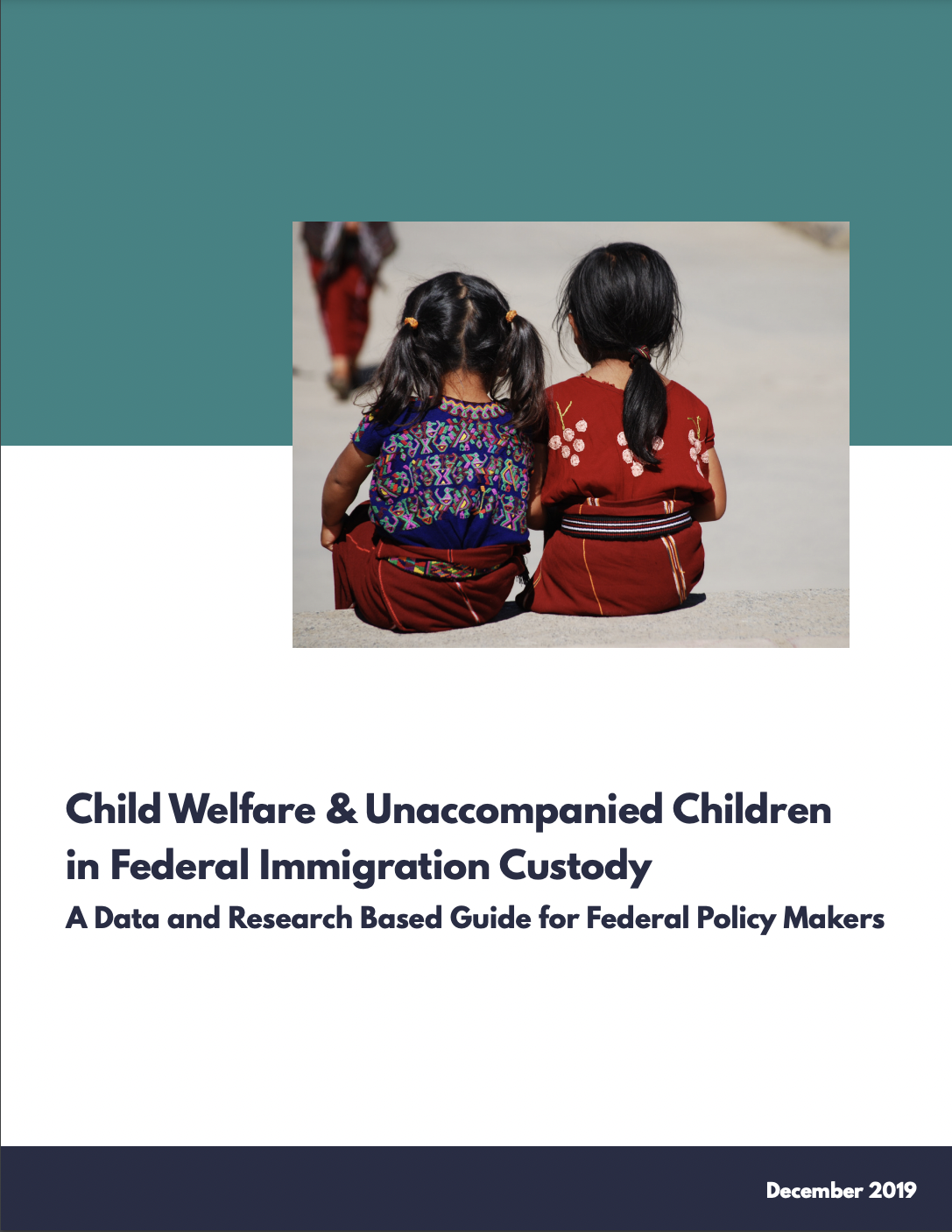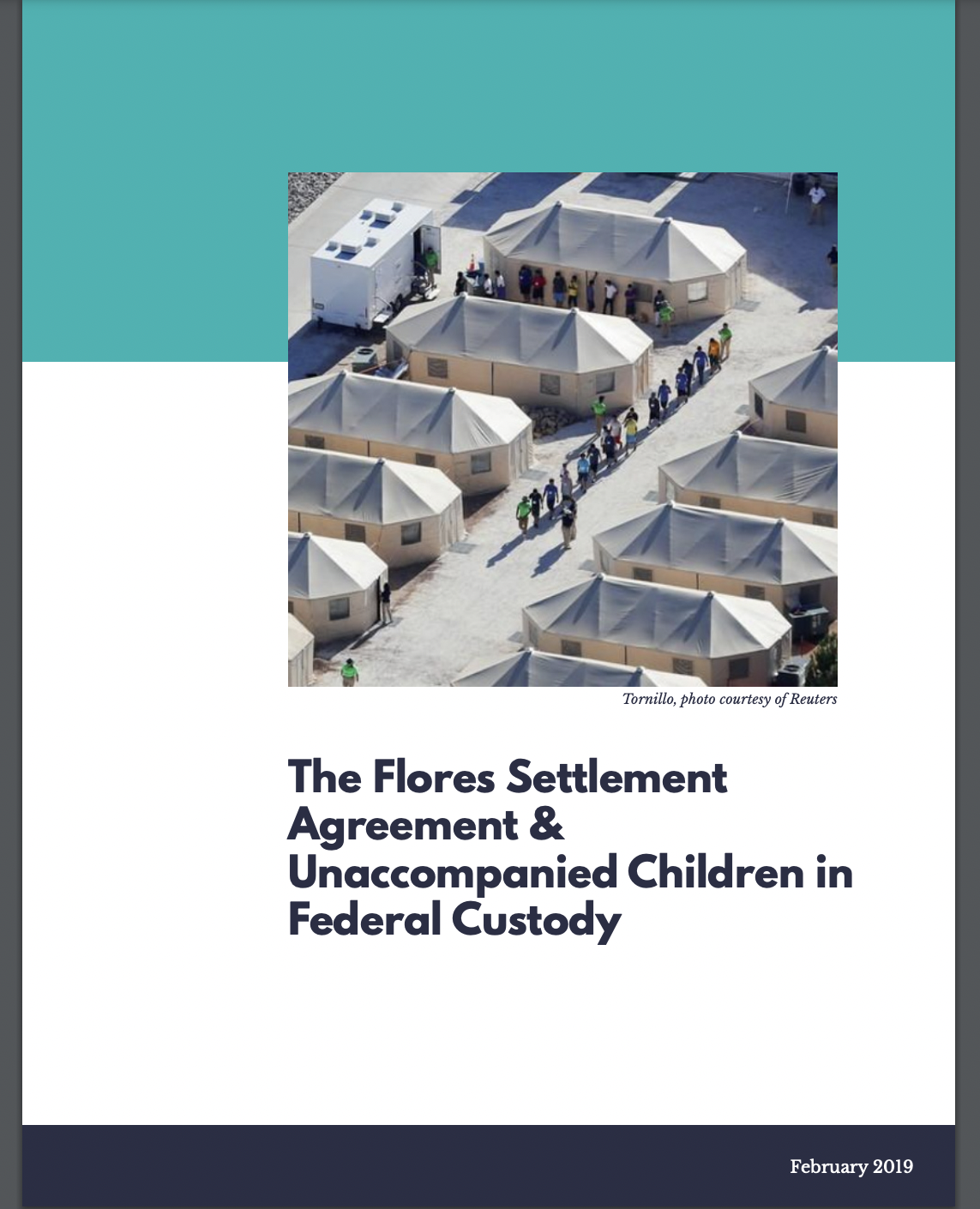Guides Aim To Inform Federal Lawmakers, Improve Immigration Policy
The National Center for Youth Law, due to its position as co-counsel in Flores v. Reno and its profound commitment to advancing justice for children, has an up-close view of the many ways that our nation’s immigration system fails children who enter our country seeking protection.
In an effort to utilize those insights to spur meaningful change, NCYL has published multiple briefings and guides to inform federal lawmakers about detained children’s experiences and how to reform or create laws that would prioritize immigrant children’s health and safety. Recent published briefings include:
 Unregulated & Unsafe: The Use of Emergency Intake Sites to Detain Immigrant Children (June 2022)
Unregulated & Unsafe: The Use of Emergency Intake Sites to Detain Immigrant Children (June 2022)
 A New Way Forward: What Congress Must Do to Protect the Dignity, Health, and Safety of Children in Immigration Custody (Jan. 2021)
A New Way Forward: What Congress Must Do to Protect the Dignity, Health, and Safety of Children in Immigration Custody (Jan. 2021)
 Child Welfare & Unaccompanied Children in Federal Immigration Custody: A Data and Research Based Guide for Federal Policy Makers (Dec. 2019)
Child Welfare & Unaccompanied Children in Federal Immigration Custody: A Data and Research Based Guide for Federal Policy Makers (Dec. 2019)
 The Flores Settlement & Unaccompanied Children in Federal Custody (Feb. 2019)
The Flores Settlement & Unaccompanied Children in Federal Custody (Feb. 2019)
‘A New Way Forward’
During its tenure, the Trump Administration inflicted new harms on immigrant children and exacerbated longstanding problems within the U.S. immigration detention system. With a new president in office and momentum continuing to build around reforming our broken immigration system, NCYL published this Congressional Briefing aimed at spearheading change.
“A New Way Forward: What Congress Must Do to Protect the Dignity, Health, and Safety of Children in Immigration Custody” describes how federal policy changes in 2020 impacted immigrant children and provides detailed recommendations for how Congress can legislate a comprehensive set of protections for children in federal immigration custody.
“Modernizing the immigration system’s care and treatment of children, to reflect child welfare principles, is long overdue,” said Congresswoman Karen Bass. “Children are some of the most vulnerable among us, and we must fulfill our moral and legal obligations to protect their health and safety. The state-sponsored abuse of children that occurred under the previous administration must never be repeated and these recommendations provide a roadmap to achieve this goal.”
The 43-page Congressional Briefing, and recommendations within, spans such topics as the length of time children spend in custody, where children should be placed, what due process protections should be afforded to children, what services children should receive, and the oversight necessary to ensure that children’s rights are protected.
Focus on unaccompanied children
“Child Welfare & Unaccompanied Children in Federal Immigration Custody” summarizes new data analysis, child welfare research, and two decades of lessons learned from enforcing the Flores Settlement Agreement. It is organized around seven basic child welfare principles and offers recommendations for changes in practice that will support the health and wellbeing of unaccompanied immigrant children who come to the U.S. seeking safety.
“The Flores Settlement & Unaccompanied Children in Federal Custody” is centered on the experiences of unaccompanied children in immigration custody and offers a summary of the main protections provided by the Flores Settlement. This Guide was published at a time when the Trump Administration was working to eliminate the Flores Settlement Agreement and the protections it provides. It offers insights and recommendations so that lawmakers are well-equipped to protect the best interests of this vulnerable population.
Making change
Now is the time to legislate a comprehensive framework of legal protections for immigrant children in federal custody. With public support backing immigration reform efforts, lawmakers are uniquely positioned to bring about much-needed change. These briefings can serve as helpful guides on that journey.






